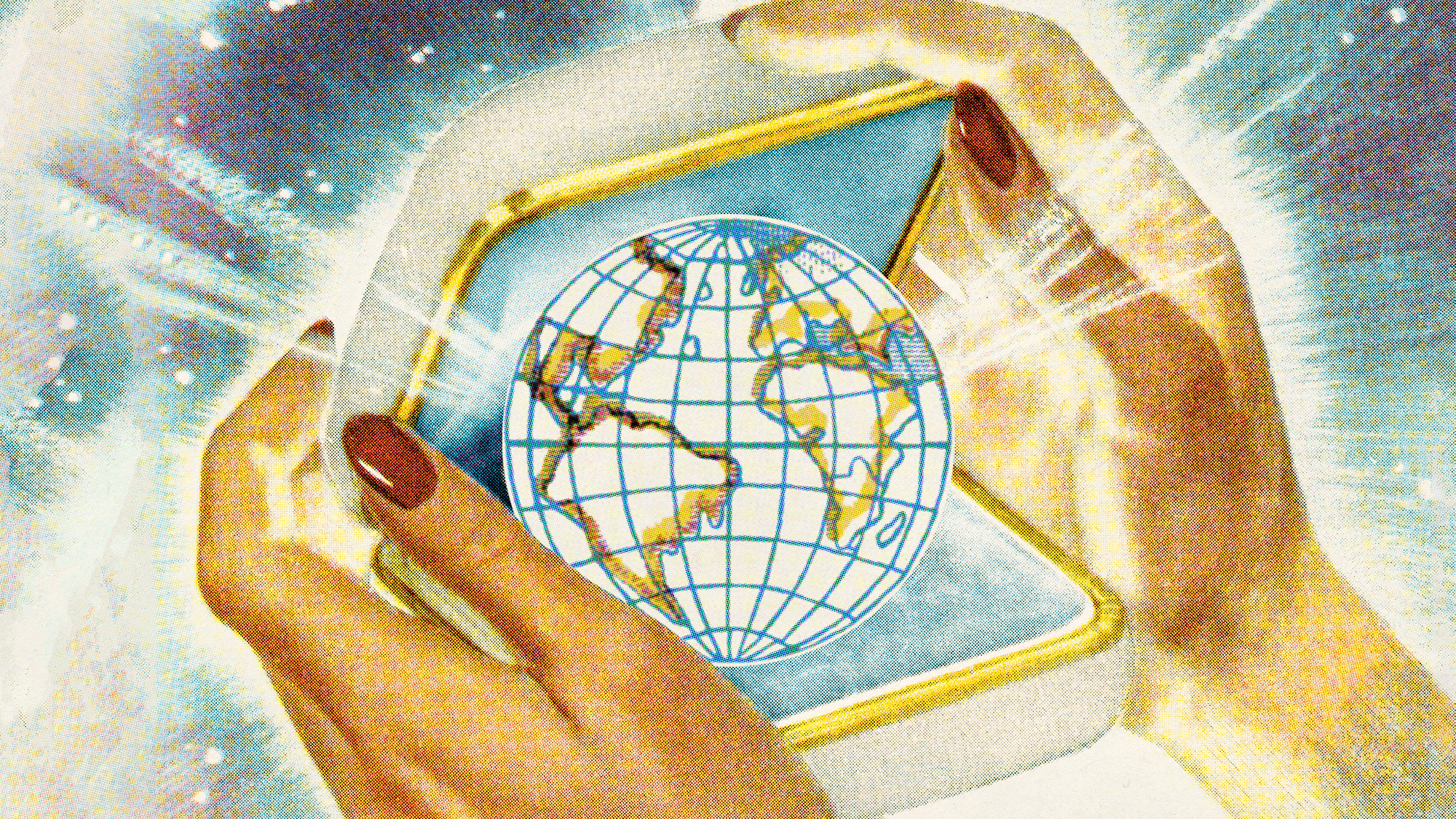When will humans go extinct?
Humans can bring on their own demise or become their own saviors


A free daily email with the biggest news stories of the day – and the best features from TheWeek.com
You are now subscribed
Your newsletter sign-up was successful
Life on Earth has reached its sixth mass extinction, which is "usually defined as about 75% of the world's species being lost in a short period of geological time," according to the Natural History Museum. While the previous mass extinctions came about due to natural causes, Forbes reported, "this is the first mass extinction event that is the result of the actions of just one species — humans."
Many of the extinctions are due to various ecological problems caused by climate change and pollution. With the human footprint on extinction, experts have debated whether we will cause our own demise in the near future as well, given the threats of climate change as well as artificial intelligence and nuclear power, all of which have been shown to have potentially catastrophic impacts.
Sooner than we think
Climate change is sending Earth's ecosystems "toward collapse much sooner than scientists thought," with a number of the planet's tipping points approaching quickly, wrote Ben Turner for LiveScience. Tipping points refer to changes that we cannot come back from, like the melting of the Arctic permafrost. "This means that significant social and economic costs from climate change might come much sooner than expected, leaving governments with even less time to react than first thought."
The Week
Escape your echo chamber. Get the facts behind the news, plus analysis from multiple perspectives.

Sign up for The Week's Free Newsletters
From our morning news briefing to a weekly Good News Newsletter, get the best of The Week delivered directly to your inbox.
From our morning news briefing to a weekly Good News Newsletter, get the best of The Week delivered directly to your inbox.
We are already seeing the loss of species across the globe. "The only other times the mass extinction levels have reached where they are now are following massive global natural disasters," Tim Newcomb explained in Popular Mechanics. Human activities are destroying habitats globally, spelling disaster for a number of species. "To put it bluntly, the current way of Earth will kill off humans' way of life."
Artificial intelligence is also a threat to humanity, and "it seems only a matter of time before computers become smarter than people," Émile P. Torres wrote for The Washington Post. Experts have warned of the threat of AI leading to human extinction, namely predicting that computers may take on the role of superior beings to humans ultimately leading to our downfall."It's unclear humanity will ever be prepared for superintelligence, but we're certainly not ready now."
Not quite yet
Despite looming threats, we cannot overlook humanity's resilience. "Humans have long been distinguished for their capacity for empathy, kindness, the ability to recognize and respond to emotions in others," KC Cole remarked in Wired. We have "a sense of self" and "pride ourselves on creativity and innovation, originality, adaptability, reason." Because of that, it's too early to be certain that we are headed to our end just yet.
"We're also in an era of abundance — and remarkable wealth — that's fueling innovation that could enable us to fundamentally change our destiny," remarked Avi Jorisch in the Jerusalem Post. The bigger problem may actually be humans stagnating themselves because of negative outlooks. "Psychologists have long believed that some amount of hope, combined with a belief that personal actions can make a difference, can keep people engaged on climate change," meaning that hope can drive change, explained Shannon Osaka in the Post. "But finding the balance between constructive worry ... and a sort of fatalistic doom is difficult."
A free daily email with the biggest news stories of the day – and the best features from TheWeek.com
"Whether we're headed toward utopia or dystopia — or something in between — will rest on the decisions humanity makes over the next few years," Jorisch continued. The key is to leverage humanity's knack for innovation, and "if used for good," it will "allow us to make the world a far better place."
Devika Rao has worked as a staff writer at The Week since 2022, covering science, the environment, climate and business. She previously worked as a policy associate for a nonprofit organization advocating for environmental action from a business perspective.
-
 The environmental cost of GLP-1s
The environmental cost of GLP-1sThe explainer Producing the drugs is a dirty process
-
 Greenland’s capital becomes ground zero for the country’s diplomatic straits
Greenland’s capital becomes ground zero for the country’s diplomatic straitsIN THE SPOTLIGHT A flurry of new consular activity in Nuuk shows how important Greenland has become to Europeans’ anxiety about American imperialism
-
 ‘This is something that happens all too often’
‘This is something that happens all too often’Instant Opinion Opinion, comment and editorials of the day
-
 How climate change is affecting Christmas
How climate change is affecting ChristmasThe Explainer There may be a slim chance of future white Christmases
-
 Why scientists are attempting nuclear fusion
Why scientists are attempting nuclear fusionThe Explainer Harnessing the reaction that powers the stars could offer a potentially unlimited source of carbon-free energy, and the race is hotting up
-
 Canyons under the Antarctic have deep impacts
Canyons under the Antarctic have deep impactsUnder the radar Submarine canyons could be affecting the climate more than previously thought
-
 NASA is moving away from tracking climate change
NASA is moving away from tracking climate changeThe Explainer Climate missions could be going dark
-
 What would happen to Earth if humans went extinct?
What would happen to Earth if humans went extinct?The Explainer Human extinction could potentially give rise to new species and climates
-
 Bacteria can turn plastic waste into a painkiller
Bacteria can turn plastic waste into a painkillerUnder the radar The process could be a solution to plastic pollution
-
 Florida has a sinking condo problem
Florida has a sinking condo problemUNDER THE RADAR Scientists are (cautiously) ringing the alarms over dozens of the Sunshine State's high-end high-rises
-
 Diamonds could be a brilliant climate solution
Diamonds could be a brilliant climate solutionUnder the radar A girl and the climate's best friend
